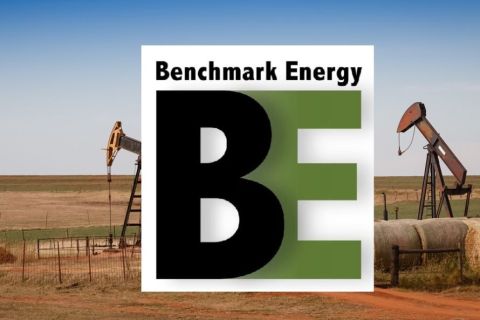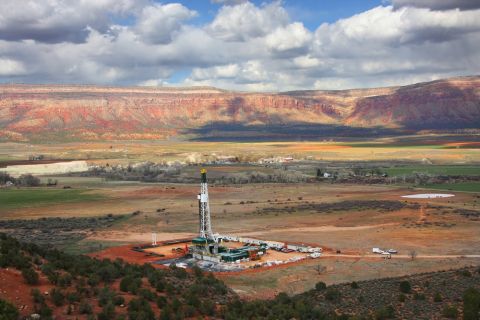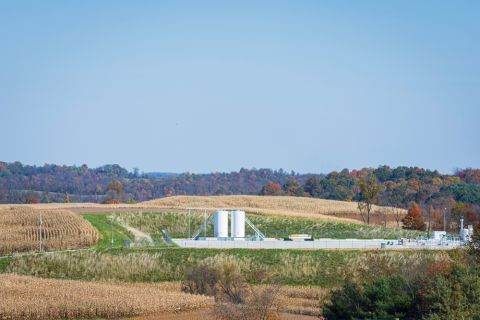Trans Mountain Corp. plans to begin line fill in March or May on its long-delayed Canadian oil pipeline expansion, depending on the diameter of pipe it uses and assuming no new problems, the Canadian government-owned company said in a filing on Jan. 3.
The company is awaiting a regulatory decision on its request for a construction change.
Line fill is a final step before the expanded Alberta-to-British Columbia pipeline begins service, providing crucial additional access for Canadian oil to refineries on the U.S. West Coast and in Asia.
The project will nearly triple the pipeline's shipments to 890,000 bbl/d.
Trans Mountain said the new schedules assume that it faces no delays caused by challenges drilling into hard rock, such as tool damage. Trans Mountain continues to target the end of the first quarter to begin shipping crude and is developing contingency plans to address any challenges to that schedule, a spokesperson said in an email.
Trans Mountain had asked the Canada Energy Regulator (CER) to allow it to install smaller-diameter pipe in a 1.4-mile (2.3 km) section of the oil pipeline's route after encountering challenging drilling conditions in a mountainous area between Hope and Chilliwack, British Columbia.
The CER denied the request on Dec. 5, later saying that the application did not adequately address concerns about pipeline integrity and the environment. Trans Mountain then asked the regulator to reverse that decision on Dec. 14, warning of a possibly "catastrophic" two-year delay and billions of dollars in losses.
The CER has not yet made a decision.
The pipeline can enter service within one month of mechanical completion, which precedes line fill, Trans Mountain said in the filing.
Canadian heavy oil prices strengthened as the filing suggested Trans Mountain and the regulator are working hard to resolve construction problems, a trader said.
In Trans Mountain's 33-page filing, it told the CER it had considered numerous alternatives before settling on the revised plan for which it is seeking approval.
The company said it has faced growing problems with water flow and abnormal wear on tools as it drills into hard rock.
Under the worst-case scenario for the plan currently approved by CER, the company's horizontal directional drilling approach could fail and require a fresh alternative that may delay the project by two years to 30 months, Trans Mountain said.
Prime Minister Justin Trudeau's Liberal government bought the project in 2018 to ensure the expansion went ahead, but costs have ballooned to CA$30.9 billion (US$23.14 billion), more than four times the original budget.
Recommended Reading
Benchmark Closes Anadarko Deal, Hunts for More M&A
2024-04-17 - Benchmark Energy II closed a $145 million acquisition of western Anadarko Basin assets—and the company is hunting for more low-decline, mature assets to acquire.
CEO Darren Woods: What’s Driving Permian M&A for Exxon, Other E&Ps
2024-03-18 - Since acquiring XTO for $36 billion in 2010, Exxon Mobil has gotten better at drilling unconventional shale plays. But it needed Pioneer’s high-quality acreage to keep running in the Permian Basin, CEO Darren Woods said at CERAWeek by S&P Global.
Uinta Basin's XCL Seeks FTC OK to Buy Altamont Energy
2024-03-07 - XCL Resources is seeking approval from the Federal Trade Commission to acquire fellow Utah producer Altamont Energy LLC.
Athabasca Oil, Cenovus Energy Close Deal Creating Duvernay Pureplay
2024-02-08 - Athabasca Oil and Cenovus Energy plan to ramp up production from about 2,000 boe/d to 6,000 boe/d by 2025.
Analysts: Why Are Investors Snapping Up Gulfport Energy Stock?
2024-02-29 - Shares for Oklahoma City-based Gulfport Energy massively outperformed market peers over the past year—and analysts think the natural gas-weighted name has even more upside.





